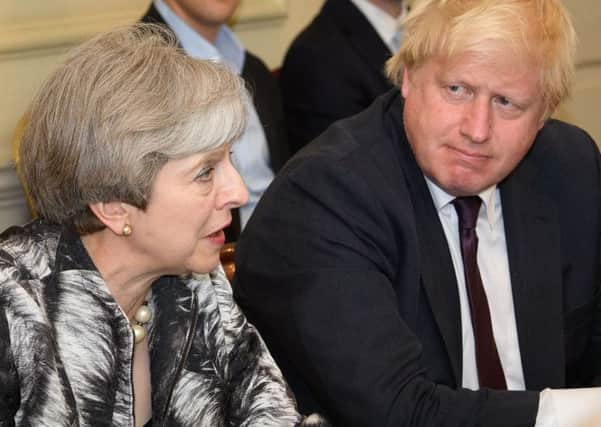YP Comment: The targeting of public money. Councils in '˜front of the queue'


If anything, it is intensifying – the very fact that Theresa May now finds herself presiding over a minority government has emboldened others to urge the Prime Minister and Philip Hammond, the Chancellor, to ease some of the spending restraints required in 2010 after Labour was voted out of office.
The latest is the Local Government Association which warns today that councils should be at the “front of the queue” for new funding if “austerity is coming to end”.
Advertisement
Hide AdAdvertisement
Hide AdThough funding for town halls is in an even greater state of flux because planned legislation to enable councils to keep £26bn generated by business rates each year fell by the wayside when the election was called, and was not re-introduced in last month’s Queen’s Speech, there does need to be some greater realism and pragmatism.
Like those Ministers guilty of glossing over the nation’s indebtedness, they need to explain where they want any extra money to come from. The options are straightforward – increased taxes, more borrowing or cuts to other budgets. This can’t be avoided.
That said, there are significant policy spheres where chronic under-investment is endangering lives. As today’s hard-hitting report by the Children’s Commissioner reveals, there are now 670,000 children who, through no fault of their own, are living in families now identified as being vulnerable.
As such, a strong case can be made for increasing child protection budgets so social workers can provide the necessary assistance. It’s a case that will be even stronger if council chiefs can demonstrate how any extra money at their disposal will reach the frontline – and not be frittered away by those tiers of bureaucracy that continue to give local government a bad name.
Peace dividend: Northern Ireland’s big picture
Advertisement
Hide AdAdvertisement
Hide AdEVEN though Theresa May’s deal with the DUP will be blamed by some for the devolution deadlock in Northern Ireland, these problems preceded the post-election pact forged between the Tories and Democratic Unionist Party.
In short, the DUP and Sinn Fein are in breach of the Peace Process which put in place an electoral system that was always going to require the two largest parties to work together on a cross-community basis.
As such, it is not Mrs May’s fault that such a far-reaching breakdown of trust has occurred – the source is DUP leader Arlene Foster’s alleged mishandling of a botched green energy scheme – and that new elections to Stormont failed to reconcile these differences.
It’s simply impractical to expect the electorate to keep returning to the ballot box until they produce an outcome which is to the liking of their political leaders. Equally, a return to direct rule at Westminster would be a retrograde step, even more so because future border arrangements with the Republic of Ireland is a significant Brexit challenge.
Advertisement
Hide AdAdvertisement
Hide AdThrowing more public money at the province, in addition to the £1.5bn promised by Mrs May, is also not the answer. Northern Ireland’s economy is already too dependent on the public sector. What is required is responsible leadership that wins the confidence of private investors – and that will only happen if the Good Friday Agreement’s spirit of compromise is honoured and reciprocated. Deadlines can only be put off so long.
The ambassadors
THE symbolism will be striking when the Duke and Duchess of Cambridge undertake a five-day visit to Germany and Poland next week. Brexit will provide a challenging backdrop to a goodwill tour intended to promote harmony and business. It’s all the more significant, therefore, that they will be joined by their young children, Prince George and Princess Charlotte, for a trip that is being undertaken at the behest of the Foreign and Commonwealth Office.
Not only do the Royal family remain this country’s ultimate ambassadors, not least because of the exemplary example set by the Queen throughout a glorious reign which began in the aftermath of the Second World War, but their mere presence at receptions, banquets and the like represents the best of Britain. For, while invitations to meet politicians are two-a-penny, no one of influence will turn down an invitation to meet the Royals as the ultimate ‘soft power’ is deployed to smooth the process of Brexit.